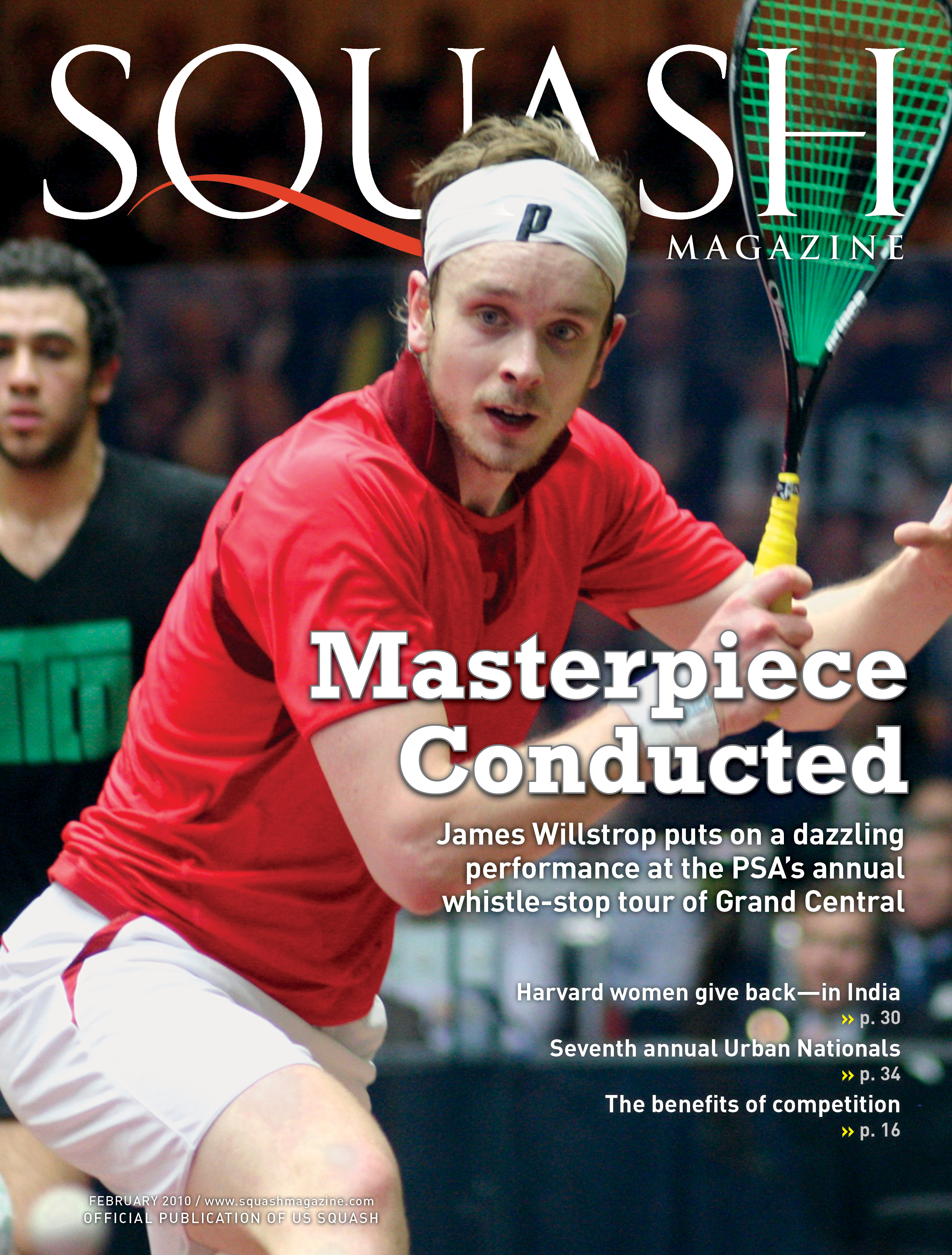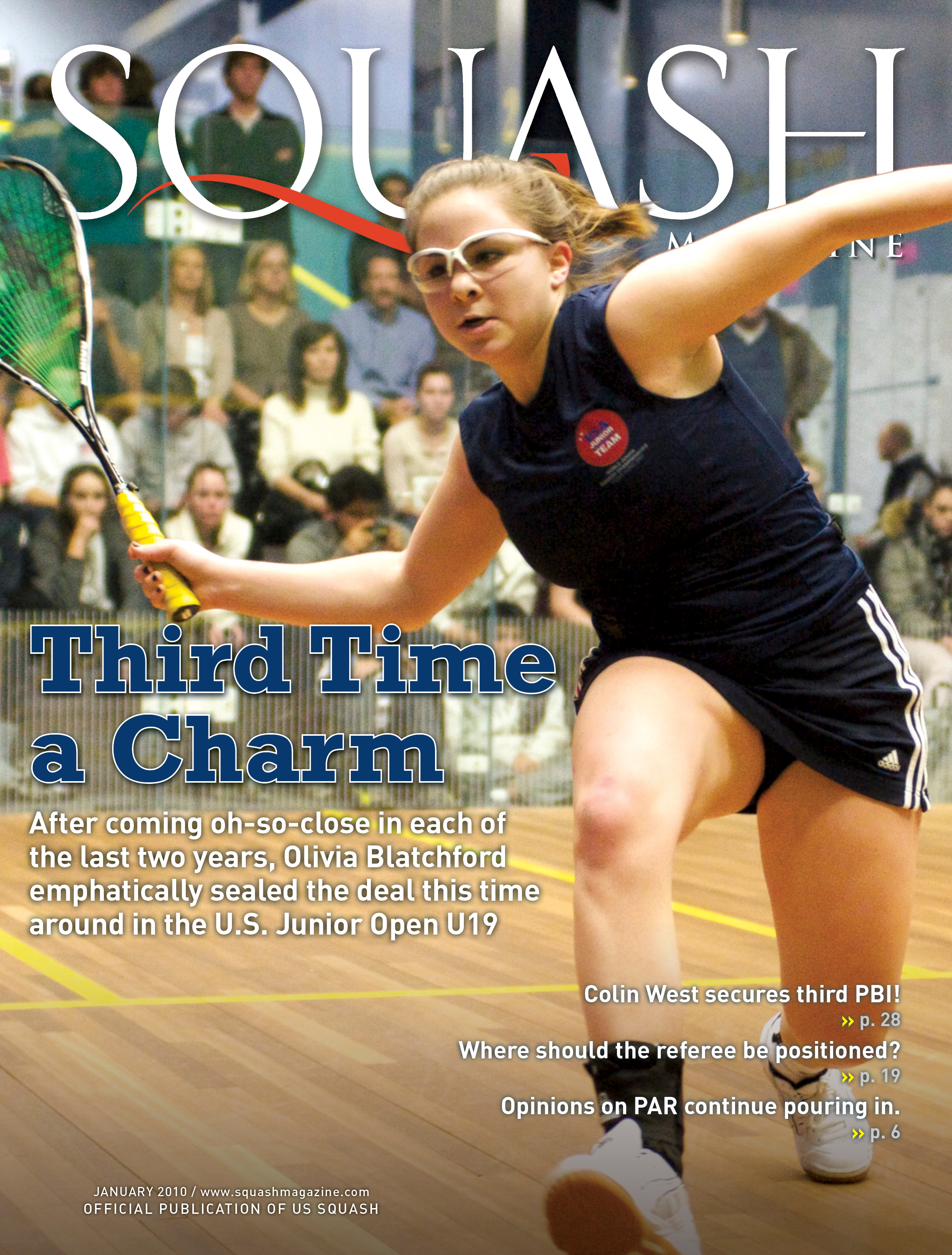
By Vidya Rajan
Villagers looked on curiously as the air-conditioned van made its way down the narrow one-lane street leading to the squash facility. Amidst decrepit living conditions, the van and its passengers, namely members of the Harvard Women’s Varsity Squash Team, Head coach Satinder Bajwa and Assistant Coach Chris Smith, stood apart, eager to begin the task at hand. After travelling and training in various parts of India, the team had finally arrived in Chandigarh to coach and tutor local children at Bajwa’s squash facility, called “Khelshala” or “Place of play.”
Many college teams take international trips solely for the purpose of training, but the three days of service and learning in Chandigarh were what made the Harvard trip to India last month a unique and unparalleled experience for members of the women’s squash team.
Bajwa opened Khelshala in August 2009, in an area of Chandigarh known as Sector 42. The squash facility boasts two international courts, one singles and one doubles court, as well a yoga room, pristine fitness equipment and locker rooms with beautiful amenities. The facility is located in the village of Attawa, home to most of the children who play there. There are dirt roads and piles of trash, derelict shops and empty spaces. The road leading up to the facility is a one-lane street, barely wide enough for the van in which the Harvard team arrived.
The opening of Khelshala created a singular juxtaposition of wealth and poverty, of hope and hopelessness, of opportunity and incapacity in Sector 42. Every day villagers would line up outside the venue, faces pressed to the glass as they tried to make out the strangely immaculate interior that seemed so distinct from the world they knew. In the midst of dust-laden pathways and tangled power lines, Khelshala stood as a beacon of optimism and opportunity for the children, who would have otherwise had no exposure to a sport as exclusive as squash.

It was beautiful to see the ways in which the sport could unite people who were as different as college students and village children living halfway across the world from one another. Though separated by a considerable language barrier, the Harvard women’s team and the village children alike were able to gain some valuable exposure to one another’s ways and views. Furthermore, they were able to overcome differences in culture, lifestyle, and values to share a common love for a game that had so significantly impacted the lives of the team members and would similarly impact the lives of the children.
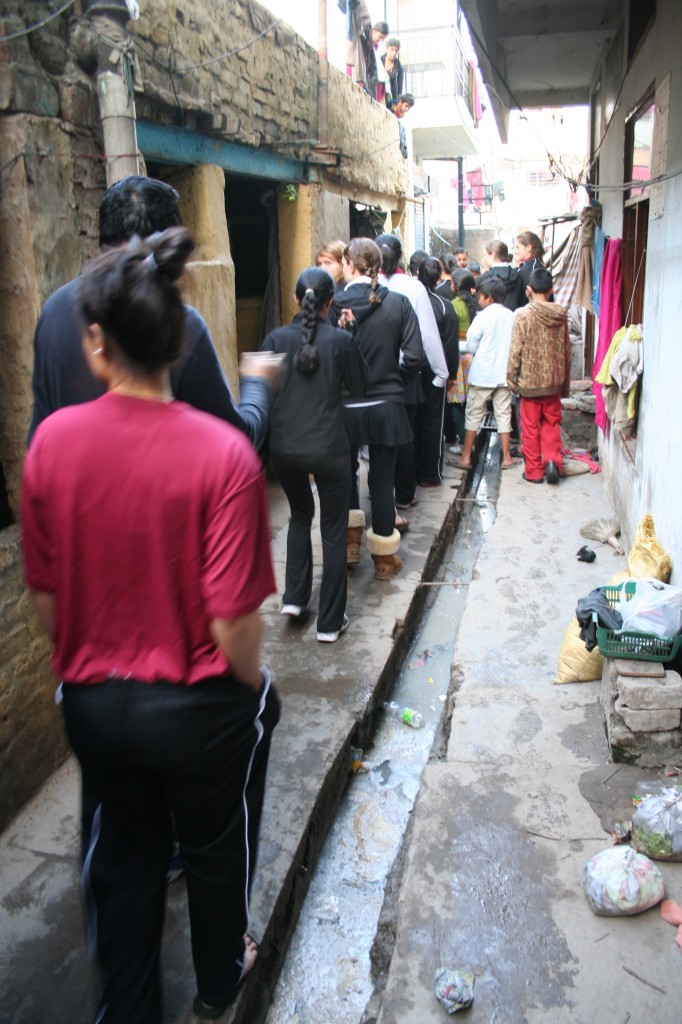
On the final day in Chandigarh, the children gave the Harvard women’s squash team a tour of their village, providing a chance for the team to observe their lifestyle and living conditions. Though the team had caught a glimpse of the kind of lifestyle they led, members were largely unprepared for the kinds of sights the village had to offer. Their homes were one-room enclosures housing entire families, overlooking a stream of dirty sewage water and standing opposite to a maze of power lines. Learning English from an old woman with a slate and pointer, some village children looked up, startled, as the Harvard team marched by in tracksuits emblazoned with the Harvard crest proclaiming “Veritas,” or “truth”—the very truth that was so difficult to bear.
And despite this, the children arrived at Khelshala thinking of the opportunity, not the adversity that they faced. For many of the Harvard women, this was the most astonishing and eye-opening aspect of the entire trip: That they could find so much happiness despite all that they endured outside of the squash facility. The children’s blithe resignation—maybe even oblivion—to the poverty they faced inspired the team to adopt and live by the Hindi phrase “Chalta Hai,” or “let it be.” Things did not always go as planned, life especially, and the ability to accept things as they came was the greatest lesson the children taught the team.
Especially at Harvard, a place of endless resources and doors wide open, the visit to Attawa gave the team a sense of awe and at the same time, a sense of awareness that it had taken a trip across the world to a village of bright-eyed children to realize that their infectious, unrelenting joy gave others no excuse for concern. They had nothing, but they had aspirations—aspirations that could potentially break them free of the lives to which they were confined.
For many members of the team, it was unsettling to consider the notion that some children may never leave this lifestyle. Many of the boys will grow up to have similar occupations as their fathers: vendors, shop owners, manual laborers. Many of the girls will be housewives. It’s an endless cycle, because, as the Governor of Punjab mentioned during his visit to the squash facility, the Haves and Have-nots run parallel without intersecting. Things are stagnant, and there may be nothing in store for them.
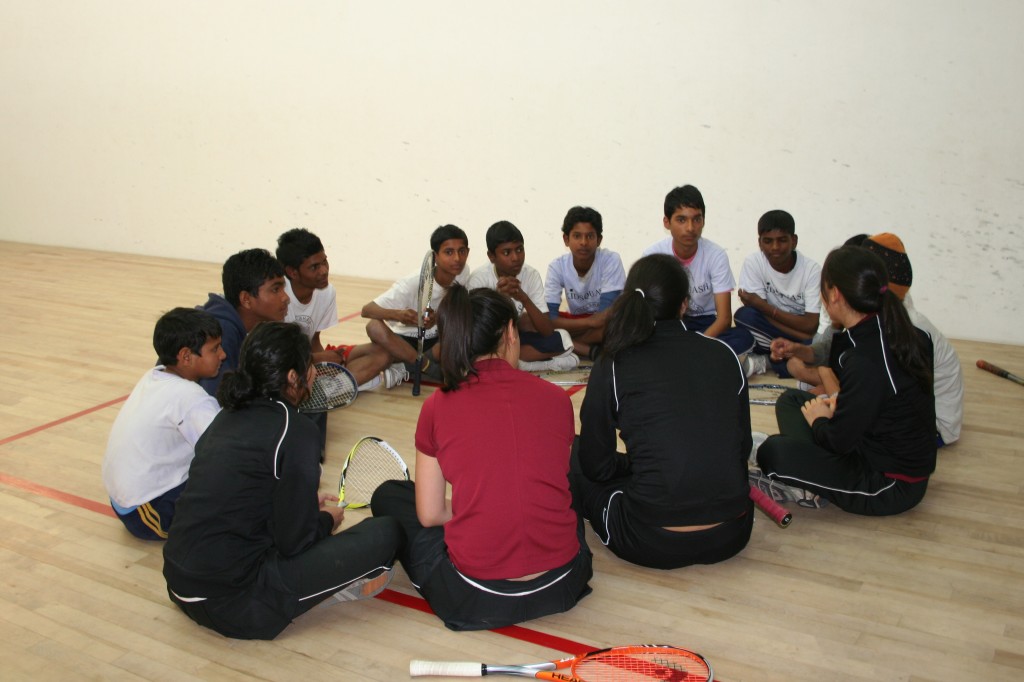
But this is the beauty of an organization like Khelshala. As Harvard assistant coach Chris Smith mentioned, unlike many inner-city squash programs in the United States it was not built with an end goal in mind, such as an elite school or college. Instead, it simply serves as a haven for village children, a place to go for those who cannot even dream of affording to play squash otherwise.
There is so much untapped potential among the children who play at Khelshala. Many children are intelligent, talented, and eager to learn. Truly, they could easily do much more if brought up in a different environment, under different circumstances. But perhaps what Khelshala provides is a step in the right direction, the first of many necessary to achieve greatness.
The Harvard Women’s Squash team travelled to Chandigarh without expectations, but it came away starting to understand the ways in which squash could change lives. It taught the team to be selfless, and it reminded them that their actions, however small, were appreciated. Facilitating change and inspiring success in these children’s lives was rewarding in itself. Empowerment through sport was possible, and in Attawa it came to fruition.
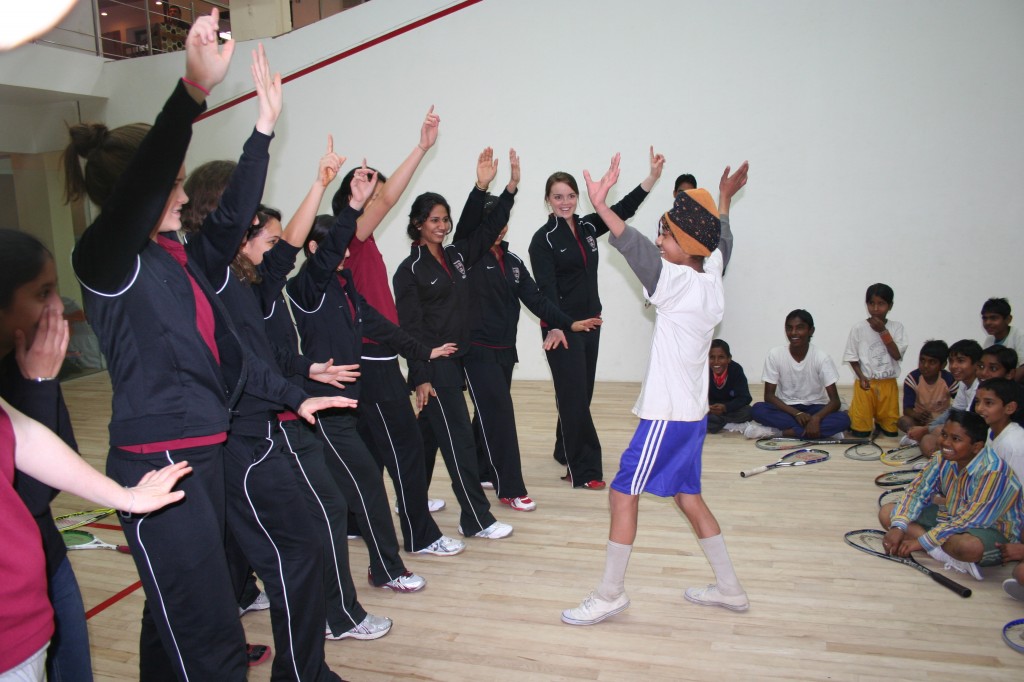
Coming away from Khelshala for the last time, tears flowed freely as the team reflected on the children’s lives and circumstances. The children deserve more. They will remember the Harvard team, and team will remember them in turn.
It has taken five years to turn the Khelshala dream to reality, but as the governor of Punjab noted, the project now needs to be supported and sustained. If you would like to volunteer with Khelshala, provide some financial assistance, get involved in any way, or simply learn about the program, please contact Satinder Bajwa directly at bajsquash@gmail.com.
It has taken five years to turn the Khelshala dream to reality, but as the governor of Punjab noted, the project now needs to be supported and sustained. If you would like to volunteer with Khelshala, provide some financial assistance, get involved in any way, or simply learn about the program, please contact Coach Satinder Bajwa directly at bajsquash@gmail.com.



